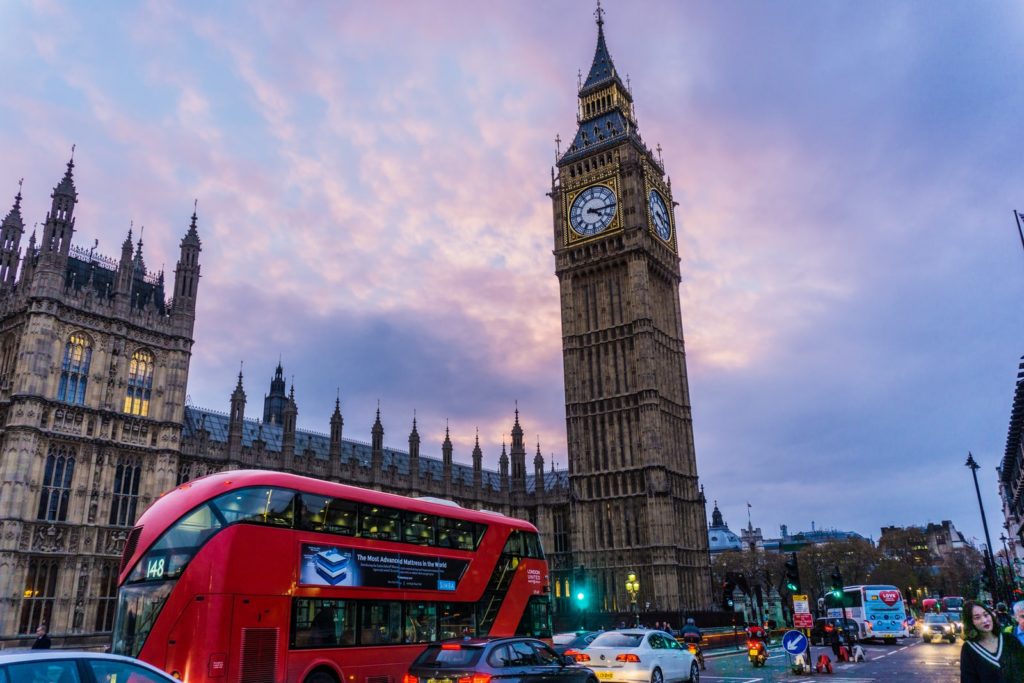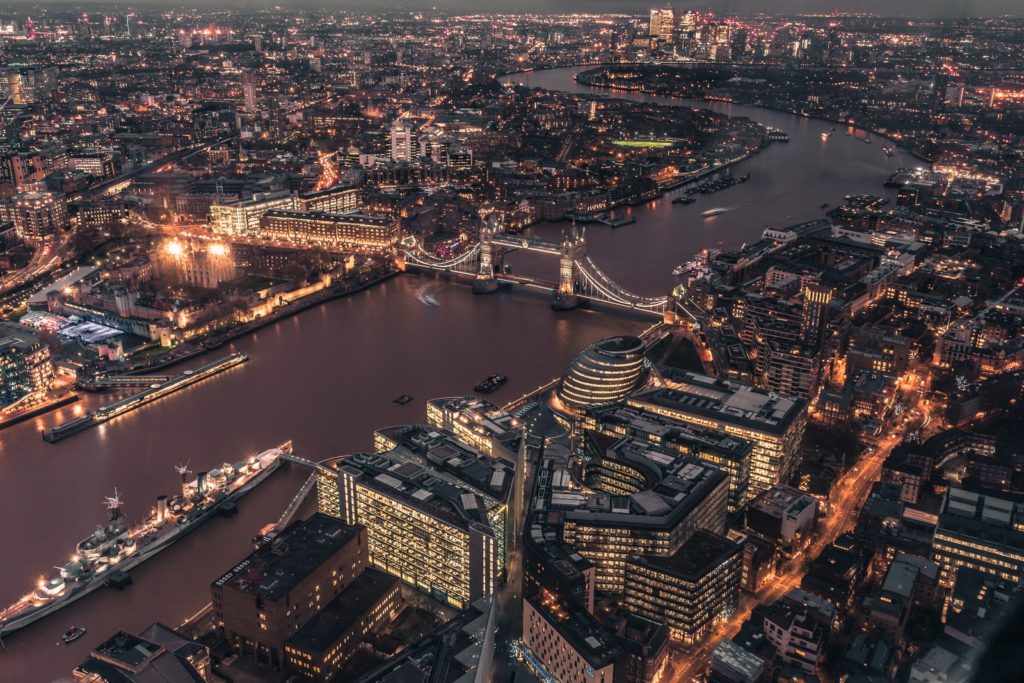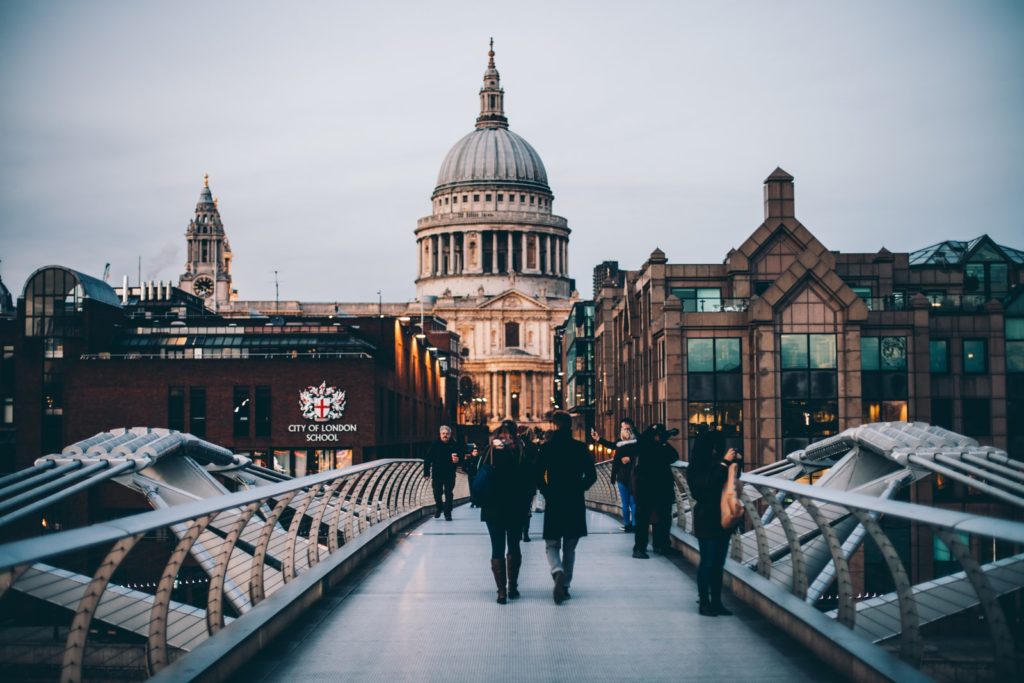Expats in London: Essentials Tips For Living in London
London is one of the most popular cities in the UK and the world for a relocation—and no matter where you’re from, it can make for an exciting and inviting home.
One of the most multinational cities on the planet, more than 250 languages are spoken in England’s capital city, making it “the most linguistically diverse city in the world”… and get this: around 37% of London’s current residents were born outside of the UK.
Friendly, welcoming, hugely diverse, and full of stuff to do, it’s pretty easy to feel at home in England’s capital city. Expat life in London is fantastic, and it’s of course one of the best places to live in the UK.
But before you decide whether or not the big move is for you, there are lots of important things you need to know. So in this guide, we’ve brought you some juicy tidbits and information on being one of the many millions of expats in London.
We’ve covered pros, cons, neighborhoods, nightlife, prices, perks, where to live in London as an expat, and plenty more. Come join the fun!
1- Pros and cons of living in London
Pros of living in London:
- It’s one of the most exciting cities on the planet: in London, you’ll always find things to do. From galleries to festivals to nights out (in addition to lots of unique, unusual and unexpected stuff) it’s basically impossible to be bored in London.
- Massive atmospheric diversity: no matter who you are or what you’re into, there’ll be a neighborhood in London you’ll love. Looking for swanky and sophisticated? Rough and rugged? You’ll find it all and much more.
- Public transport is fantastic: but we’ll cover that in much more detail soon…!
- It’s a great cycling city: with bike lanes, cycle-friendly drivers, spacious roads and good infrastructure, it’s the UK’s best city for cycling… and lots of people get around the city exclusively on two wheels.
- High salaries and good job opportunities: in 2021, the average London salary was £53.7k, which is around £15k more than the UK average. There are also loads of job opportunities in London, across a massive number of sectors.
- Lots of art, history and heritage: London is one of the most interesting, significant and storied settlements on the planet, and it’s celebrated throughout the city. From architecture to galleries to museums, there’s plenty to enjoy… and lots of it’s free!
- International communities: it doesn’t matter who you are or where you’re from, all expats in London can feel at home in the city. You’re guaranteed to meet people who speak your language and understand your heritage.
- An incredible food scene: you could spend months in London, and eat a different cuisine every day. Want Ethiopian curries? Afghan pulao? German sausages? In London, you’ll find all that and more, with endless cafes, restaurants and food markets.
- Endless parks and green spaces: but more on that later…!
- It’s easy to explore the rest of England from here: London has excellent connections to the entirety of England, both by bus and train. Even Wales and Scotland are only a few hours away by public transport.
- Public services: all permanent UK residents can access lots of state-offered services. All children are entitled to free education, while everyone can access mostly-free healthcare.
Cons of living in London:
- Price: London is one of the most expensive cities in the world. We’ve brought you some specific statistics later in this guide, but you can expect to pay high prices, especially for rent, alcohol, and eating out.
- It’s difficult to find a place to live: lots of people live in London, and lots of newcomers arrive in the city every day… so the property market is a little messy. For those reasons, it’s often better and easier to find a serviced apartment or serviced flat in London.
- Endless tourists: though this isn’t necessarily always a bad thing (and some people even enjoy it), it’s good to be aware that London has LOTS of tourists. When you’re trying to go about your normal life, that can sometimes get pretty annoying.
- It can take a while to ‘get’ the city: in time, all expats in London fall in love with the city. And for city-slicking cosmopolites, that might be a pretty swift process. But if you’re not accustomed to this pace, size or scale, it might take you a little longer.
- Competition: though there are lots of jobs in London, there are lots of people trying to nab those jobs. So for some expats in London, it can be difficult to find employment.
- The weather: British weather is often pretty bleak and depressing, with lots of gray, rainy days. That said, London is warmer and less rainy than many other parts of the UK, so the rumors aren’t 100% true—the city has an average of 1,675 sunshine hours per year.
It’s a pretty dirty place: compared to many other western European cities, London (in some parts) can be pretty dirty… and lots of people are surprised by how unclean and untidy it is. But in truth, that’s often the case for any major capital city.
2- Public transport in London
London’s public transport system is excellent, extensive, regular and reliable (though it’s admittedly pretty expensive).
It’s very easy to get around the entire city without a car, and the vast majority of people who live in London don’t have access to their own four wheels. In and around the city, you get buses, trains, trams, boats, and of course the iconic Tube.
To understand the prices, it’s essential to understand London’s zone system. So here’s how it works: London is divided into nine different zones, numbered (unsurprisingly) from 1-6. The further from the center a region is, the higher the number it’s allocated. All of this said, the vast majority of the city lies within the first 6 zones, and it’s rare that you’ll venture outside of them.
The further you travel from the center, the more expensive a journey typically is. But it’s important to know that this system doesn’t apply to buses—and all bus journeys in London cost the same amount, no matter where you’re traveling, or how long you’re traveling for.
The most affordable way to travel around London is by getting your hands on an Oyster Card (a city-wide travel card that allows you to shuttle yourself around on all forms of transport). To use your Oyster Card, you simply tap your card onto the card reader upon entry to your transport.
Having an Oyster Card allows you to travel on a ‘cap’… which is very useful if you make lots of journeys every day (or every week). With this cap, there’s a pre-designated limit to how much you pay in any daily or weekly period, no matter how many times you travel. These caps differ depending on how and when you travel—but it’s always the most affordable and logical way to travel, and single-use tickets are pretty much always more expensive.
That said, lots of people now pay with their contactless debit or credit card. This system works in exactly the same way, and it’s quickly becoming a more common option than the Oyster Card. But it’s important to note that cards issued outside of the UK might incur an extra charge—so as an expat in London, you should be careful about which card you use.
London is also home to a city-wide bike hire scheme, with usable-but-unimpressive pay-to-ride bicycles dotted around almost-endless parts of the city. If you like exercise, they’re a great option.

3- Opening a bank account in London
All expats in London of course probably want a bank account. You don’t necessarily need one, but having one will make your expat life in London much easier.
To open an account, you’ll usually need a passport (or ID card), a proof of where you live (such as a recent utility bill), and a recent bank statement or credit card statement from an existing bank account. Some of the UK’s banks allow you to do this from abroad… but in this case, the required documents will of course be different, and different banks require different documents.
Some of the UK’s most well-known, trusted and long-standing banks are Halifax, Barclays, HSBC and Santander. Getting a bank account with any of those providers is a good idea.
It’s also possible to open a bank account online, without ever accessing an actual in-person branch. Monzo, for example, is a very popular online-only UK-based bank with easy setup and a great app. Another online option is Revolut, which is almost as popular.
Whether you open a bank account online or in-branch, online banking in the UK is reliable, simple and easy… and you’ll probably find that you’ll rarely need to visit an actual bank in person.
4- Best neighborhoods to live for expats in London
Where to live in London as an expat massively depends upon who you are and what you’re looking for. But here are some of the different options, to give you an idea of how vast, diverse and varied London is:
- Peckham: partially gentrified, partially grubby, but totally loveable and alluring, Peckham has a charm and magnetism that few other places have. It’s rough around the edges, but that’s just one of the reasons it’s so great.
- Chelsea: the complete antithesis of a place like Peckham, Chelsea is very expensive and upmarket, and it’s where lots of the city’s richest people live.
- Battersea: with a lovely combo of good nightlife, nice parks, interesting events, good schools, a great location, and lots of places to spend time, Battersea is a compromise in all the best ways.
- Fitzrovia: popular with families, young professionals, and people who like to shop, Fitzrovia is pricey. But it’s central, pretty, and close to everything you could ever want.
- Richmond: leafy, laconic, and lying on the outskirts, this is one of the best family-friendly neighborhoods in London, and it’s a popular weekend getaway for city-center dwellers.
Broadly speaking, there’s a vague perception that the London areas north of the river are a little more refined, classy, expensive and upmarket… while the areas south of the river are more vibrant, friendly, affordable, and edgy. And while that’s sort of true, it’s a huge simplification of the actual situation.
But here’s the most important thing to remember: no matter what type of neighborhood you’re looking for, you’ll find it in London.
5- Best areas for restaurants and bars in London
Pretty much all of London is good for grabbing food and drinks. But some of the best neighborhoods include:
- Chinatown: one of the best and biggest Chinatowns on the planet, this place is brimming with authentic food, and it’s of course popular with the Asian expats in London.
- Peckham: from small grocers to authentic jerk chicken to laid-back canteen-style joints, Peckham’s food scene is diverse, delicious, and unpretentious.
- Camden: famous for countless food trucks, there’s nothing you can’t eat in Camden. Grab a cheap meal, sit by the canal, and you’ll realize why the area is so popular.
Dalston: there are food markets everywhere in London—but Dalston’s weekly weekend market might just be the best in the entire city.

6- Best areas for London nightlife
London is one of the world’s best cities for nightlife, and you could party every night there without getting bored. Some of the city’s top nightlife districts include:
- Soho: renowned for cheap pubs, good beer, and excellent LGBTQ bars, it’s impossible to spend a night in Soho without having fun.
- Brixton: with an eclectic music and arts scene, Brixton is one of the most vibrant neighborhoods in the city, and you’ll always find unusual events and friendly faces.
- Shoreditch: possibly the hippest district in all of London, Shoreditch is full of pop-up venues, graffiti-covered bars, and more trendy beards than you’ve ever seen.
- Southbank: arguably more popular with tourists than locals, Southbank is a great place for sipping and slurping on the banks of the river, and it’s massively popular in summer.
7- Best parks in London
When people think of London, they think of a built-up metropolis crammed with nothing but offices, apartments, and endless busy areas.
But that’s a massively misguided perception, and many expats in London are surprised by just how green and leafy lots of London is: a hefty 47% of the city is classified as ‘green space’ (whatever that means).
Some of the best parks in London include:
- Hyde Park: the most famous green space in London by a very long way, you’ve probably already heard of this place. Home to a big lake, lots of birds, occasional festivals, and some great places to sit and do nothing, Hyde Park is fantastic.
- Richmond Park: this place is ridiculously beautiful and unique. On the western outskirts of the city, Richmond Park is famously home to large packs of free-roaming wild deer. Great for picnics, bike rides, and meeting the friendly critters, it’s a great place.
- Battersea Park: one of the city’s most underrated spots, Battersea Park has been offering verdant escapes since the 19th century. With a zoo, cafes, great running trails, and a nice riverside area, it’s a lovely place for a lazy weekend.
8- Expat forums in London, and expat groups in London
London is one of the most sociable, bustling cities on the planet, and it’s outrageously easy to make friends there, both online and in-person.
But if you’ve just arrived, the prospect might understandably be a little daunting.
To make friends with other expats in London, Facebook is a good place to start… and the Expats in London Facebook group is very active and engaging. The London Events Facebook page is also useful—and is of course a good place to find events (and people to attend those events with!)
Aside from those two groups, there are many more expat forums in London and expat groups in London… so have a search and you’ll find plenty.
Couchsurfing is also a trusty and reliable resource for making new friends, especially in a new city.
Lots of expat life in London is centered around specific events and activities. So if you’re interested in any particular hobbies or pastimes, find online groups related to those pastimes, and you’ll meet lots of like-minded people.

9- Finding a place to live for expats in London
This can be a tricky part of moving to London.
Rents are expensive, competition is high, and the appealing and affordable places usually disappear from the market very quickly.
For those reasons and more (as we’ve already mentioned), it’s often easier to look for serviced apartments or short term rentals in London when you first move. This is an especially useful idea for non-UK nationals who are moving to London, as you can find a place to live before you move, making your relocation much more swift and simple. You can also find hordes of lovely luxury apartments in London through Homelike.
That said, it’s possible to search for houses and apartments online, and Rightmove and Zoopla are the two most popular house-hunting resources in the UK. If those aren’t very fruitful, you might want to try contacting some London-based estate agents, who can help you to find a place to live.
10- Finding a job for expats in London
Like basically anywhere else in the world, you’ll find most jobs online, and the internet is the best place to start your search.
The best online jobs boards in the UK include Indeed, Monster, GuardianJobs, CV Library, and TotalJobs… but there are plenty more great resources.
The vast majority of the time, you’ll need to secure a job before you move to the UK—it’ll make your application much easier.
But if you’re already in the UK, you’ll find jobs posted in newspapers, and in the UK-wide offices of Jobcentre Plus. Jobcentre Plus helps people get into employment, take employment courses, and apply for state-supplied financial benefits.
10- Cost of living in London
This is of course one of the most important considerations for expats in London.
Broadly speaking, here are the types of prices you can expect to encounter in the city:
- 1-bedroom apartment in the city center: £1,780
- 1-bedroom apartment outside of the city center: £1,300
- 3-bedroom apartment in the city center: £3,320
- 3-bedroom apartment outside of the city center: £2,170
- One-way ticket on local public transport: £2.60
- Regular monthly pass for local public transport: £160
- Meal for 1 at an inexpensive restaurant: £20
- 3-course meal for 2 people at a mid-range restaurant: £60
- Large draught domestic beer in a bar or restaurant: £6
- Regular cappuccino in a cafe or restaurant: £3.20
- 0.33 liter Coke or Pepsi in a cafe or restaurant: £1.60
- Regular liter of milk from a supermarket: £1.05
- Loaf of white bread from a supermarket: £1.17
- 12 regular eggs from a supermarket: £2.38
- 1kg of local cheese from a supermarket: £6.12
- 1kg of chicken breast filets from a supermarket: £6.06
As you can see, rent, alcohol, and eating out are all very pricey. But groceries can be pretty affordable, especially if you shop in small local markets.
All prices above have been taken from Numbeo, where you can find way more cost of living statistics.
11- Types of visa for moving to London
Here’s where things get complicated. And because there are such a broad range of possibilities, it’s impossible for us to advise on the best course of action for you and your specific situation.
Because of that, you should check the rules according to where you’re from, what you plan to do in the city, what type of employment you’ll be undertaking (if any), and how long you plan to stay. A good place to start is the official UK government website.
But be warned: moving to the UK as a foreigner is notoriously tricky. Expect to have a great life in London, but don’t expect an easy ride getting there.
For more help, here’s some extra information on living in the UK and moving to the UK… and more information on moving to London.
Quick links to find apartments in London
- For short stays in London, try our London short lets
- For 6+ months, check out London long term lets
- If you want services, see London serviced apartments
- If you’re on a budget or need only a small space, see London studio apartments
- If you like a separate bedroom, try our 1 Bedroom Apartments London
- If you’re moving with a small family or need extra space for an office, see our 2 Bedroom Apartments London
- If you need extra rooms for your family, try our 3 Bedroom Apartments London
- If you’re moving with a pet, try our Pet-friendly apartments/ flats London
- If you need luxury and style, see our Luxury apartments in London
- If you need an indoor fitness centre, see our Apartments with gym London
- If you have a car, try our London apartments with parking
- If you need some outdoor space, see London apartments with balcony
- All our apartments in London are Furnished apartments






















